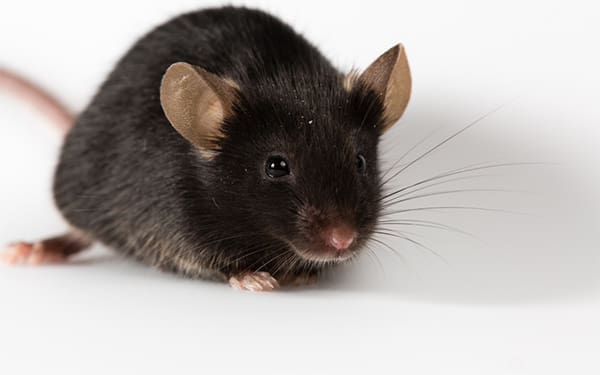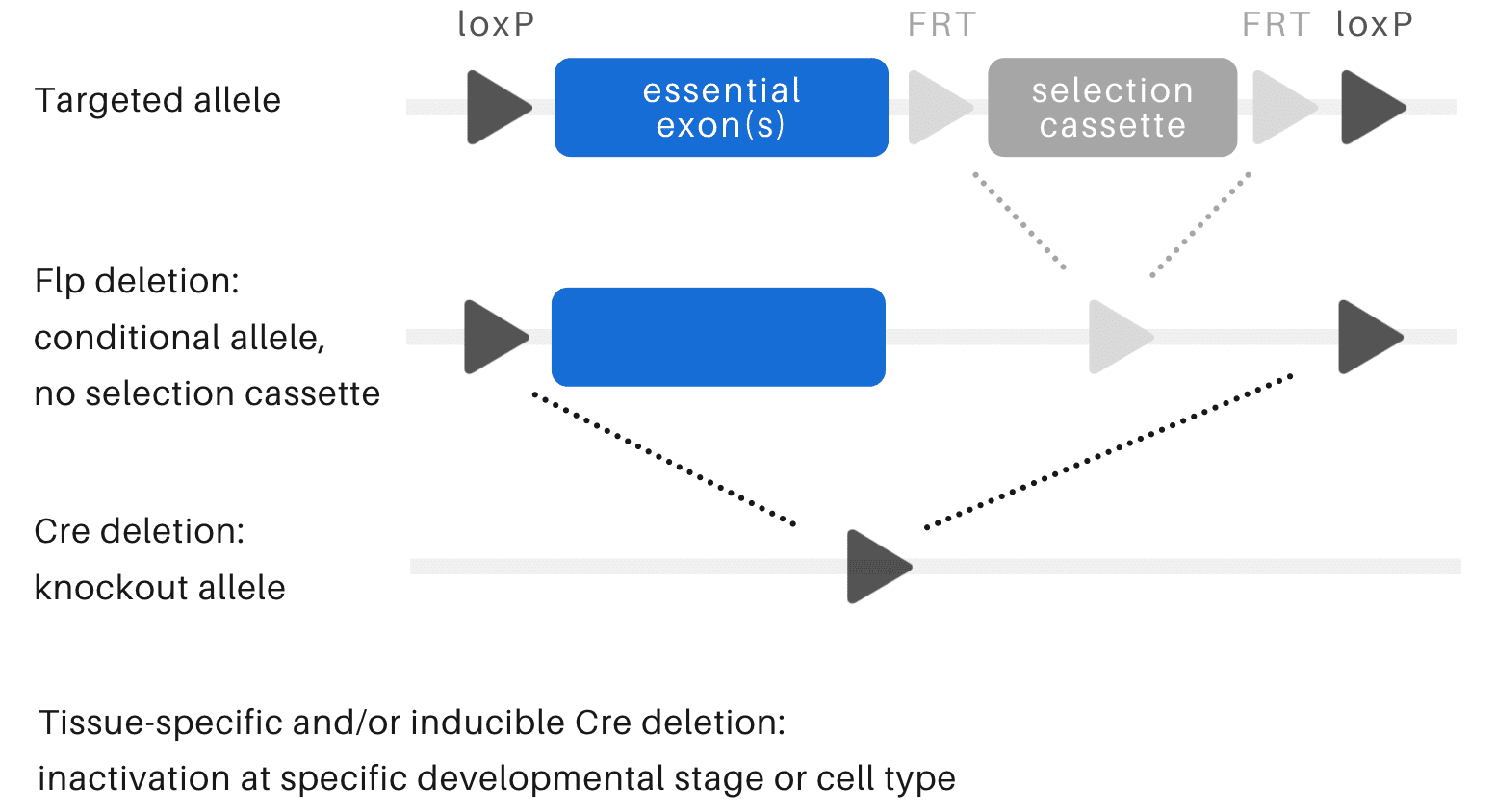Knockout mice
Knockout mice
What are knockout mice?
Knockout mice are animal models that have been genetically modified to delete or inactivate a specific gene. The term ‘knockout’ refers to knocking out the functionality of the target gene. These mouse models allow researchers to gain insight into how the loss of the gene affects physiology, behavior and disease development. Observing the characteristics of a knockout phenotype can also help researchers understand human gene expression and genetic diseases.

What are knockout mice used for?
Knockout mouse models are widely used to study gene function or the role of specific genes in normal or disease physiology. For more information on research using mouse models, check out our research features and publications.
Study of gene function
Loss of function is a valuable scientific method to study gene function by comparing the knockout animal model to a wild-type mouse. Sometimes a gene of interest needs to be inactivated at a certain developmental stage or cell type for a defined phenotype of interest to be observed. Conditional knockout models enable the study of gene inactivation in a specific cell type, tissue of interest, or in a temporally controlled manner, such as a defined developmental stage from pups to adult mice.
Human disease research
Knockout mouse models have been used extensively to research human diseases such as cancer, heart disease, diabetes, obesity, arthritis and neurodegenerative diseases, and have formed the basis of many of the advances in human medicine. By creating a knockout mouse model for one of the many genes suspected of contributing to a particular human disease, scientists can investigate what effect knocking out this gene might have on the development of disease over time.


How to make conditional knockout mice?
A conditional knockout allele can be created using Cre/Lox technology, which involves inserting Lox sites to flank an essential exon or exons in a gene. The conditional knockout mice are phenotypically wild type but contain the ‘floxed’ allele in all tissues. Cre recombinase then excises the DNA between two Lox sites resulting in a non-functional knockout allele. Breeding to different Cre mice allows for the generation of full body, tissue-specific or inducible knockout mice. At Ozgene, the timelines, efficiency and animal ethics of gene targeting in ES cells have been significantly improved by the use of our proprietary goGermline™ technology.
How long does it take to generate knockout mice?

“No project queues – get started today!”
Ozgene’s Lean management style coupled with patented goGermline technology allows us to generate mouse models in the fastest possible time together with increased certainty of germline transmission.
Read more about Ozgene’s knockout mice
The generation of stable microvessels in ischemia is mediated by endothelial cell derived TRAIL
Trefoil factor 2 expressed by the murine pancreatic acinar cells is required for the development of islets and for beta cell function during aging
Ki67 deficiency impedes chromatin accessibility and BCR gene rearrangement
Get in touch
We offer personalised services for your research needs. Request a free quote today.
Please fill out the form and we will respond to your query within two business days. Alternatively, visit our contact page for more ways that you can get in touch with us.
‘I selected Ozgene because of the reputation, scientific quality and compatible prices. The best aspects of Ozgene service were professionalism, friendly staff and regular updates on work progress.’
– Prof. Dee Harrison-Findik, University of Nebraska, USA

